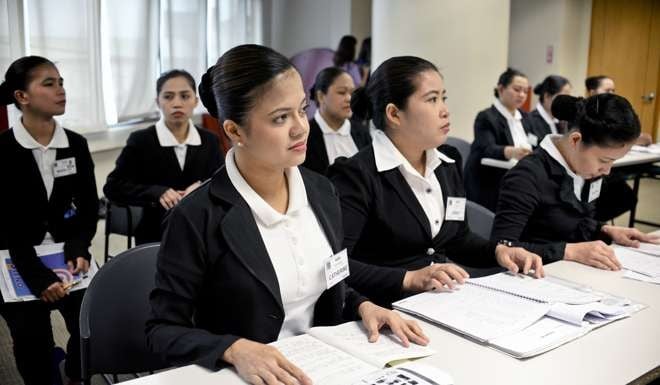
Japan shuns Hong Kong model as it prepares to get its first foreign maids
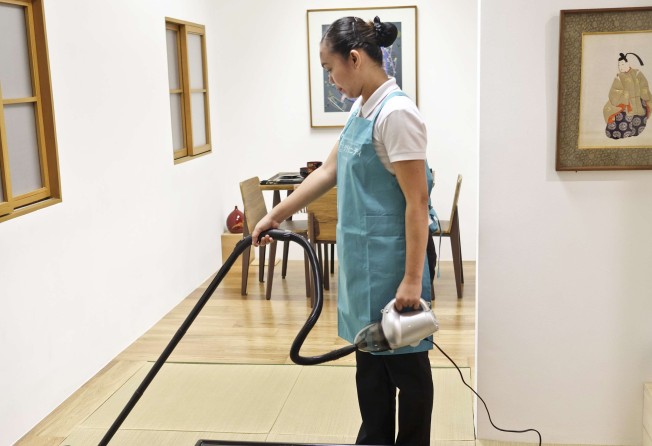
About 50 Filipino domestic helpers are scheduled to begin arriving in Japan in February as part of the country’s first move toward bringing in foreign workers for housekeeping services.
Previously, only certain households, such as those of foreign diplomats, had been allowed to employ foreign housekeepers. But in 2015, the administration of Prime Minister Shinzo Abe pushed to deregulate the market in a bid to increase women’s workforce participation.
The admission of cleaners from overseas — first to Kanagawa and Osaka and later to Tokyo — is aimed at making housekeeping services affordable for the middle classes and getting more Japanese women into the workforce.

It is a very Japanese way of doing things. We couldn’t have them flooding in like they do in Hong Kong
The legal change, which is also aimed at easing labour shortages in Japan’s housekeeping industry, paved the way for foreigners to work as domestic workers in some designated areas, such as Kanagawa, the prefecture just southwest of Tokyo, and Osaka, the largest city in western Japan.
Duskin Co., a major cleaning company, will send four each to Kanagawa and Osaka, while Pasona, a major staffing services firm, will dispatch 25 to Kanagawa.
Bears Co., a housekeeping service provider, will dispatch a total of eight to the two areas, while Poppins Corp., which offers child care, educational support service and nursing care, will send five workers to Kanagawa.
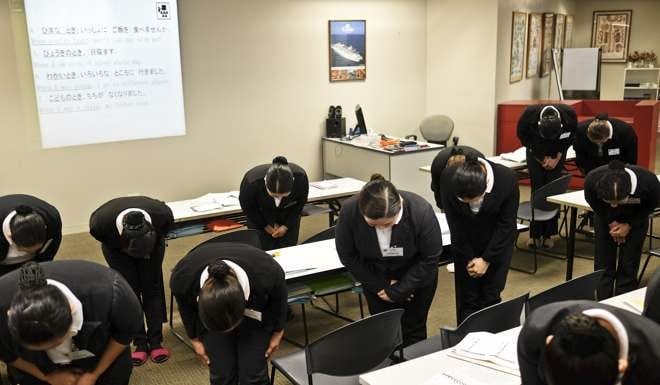
On top of the four firms, Nichiigakkan Co., a major nursing care company, has applied to hire 30 foreign housekeepers so it can start offering a similar service by summer.
Under the new visa category created for special zones, cleaners must be employed full time by agencies, rather than individuals, and be paid as much as their Japanese colleagues. Rather than living with a family, recruits must be provided with their own accommodation. They must also speak basic Japanese.
Since the 1970s, foreign domestic workers have been permitted to stay in Hong Kong to address the city’s shortage of local, full-time live-in helpers. However about one third of domestic workers in Hong Kong do not have a room of their own to sleep in at their family’s home, a study of 3,000 helpers by the Mission for Migrant Workers found in 2013.
At present, their minimum allowable wage is HK$4,310 per month.
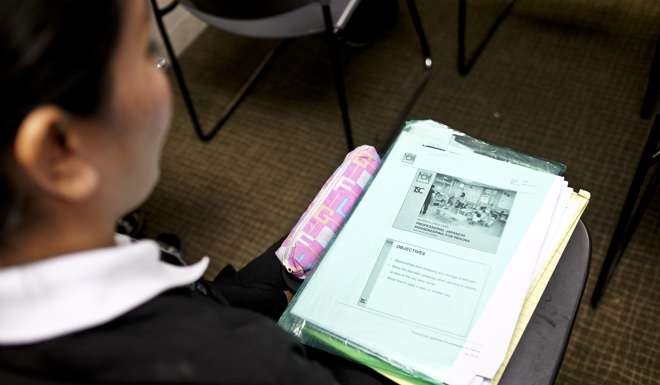
Work performed by foreign domestic workers under the Japanese programme would be limited to such activities as cooking, laundry, cleaning, shopping and childcare. They would not be allowed to engage in nursing care.
Prospective housekeepers must be at least 18 years old, have at least one year of work experience in housekeeping services, and basic Japanese language skills. They must undergo training for at least 200 hours.
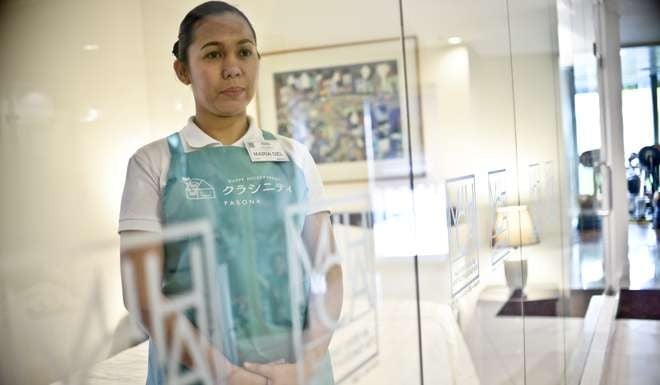
These housekeepers can stay in Japan only for a maximum of three years.
The Tokyo metropolitan government has also begun soliciting providers of similar services in Tokyo, which is also given the specially designated-area status. Bears is seeking to host 10 to 15 workers and Poppins 12.
The central government eventually wants to expand this programme nationwide.
Heizo Takenaka, a former economy minister who now serves on a government panel on special economic zones and as chairman/director at Pasona, sees the housekeeping programme as Japan’s first serious attempt at bringing in the workers needed to put the economy on track.
While immigration opponents fear a rise in crime if rules are eased, he cited Singapore as an example of a country with many foreigners and low crime.
“This won’t change things drastically,” Takenaka said of the housekeeping programme. “It is a very Japanese way of doing things. We couldn’t have them flooding in like they do in Hong Kong.”
Additional reporting by Bloomberg